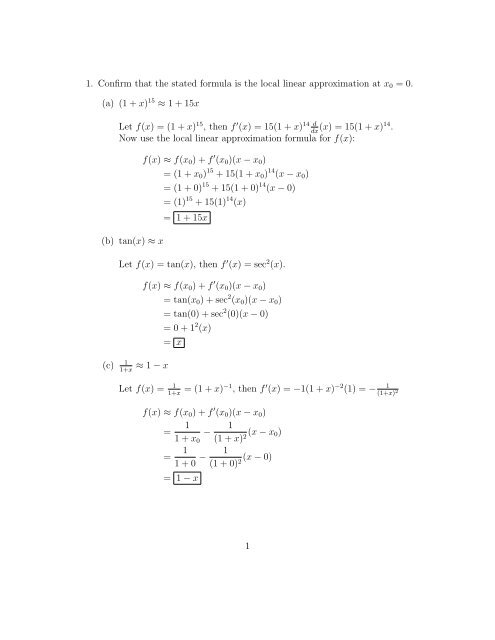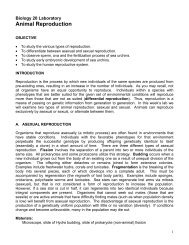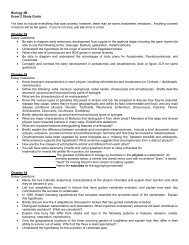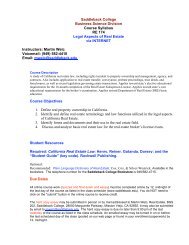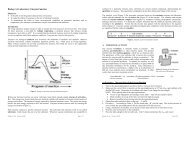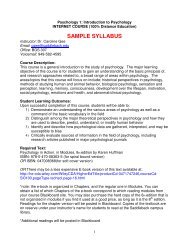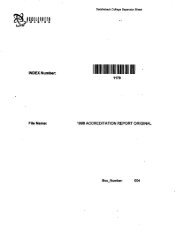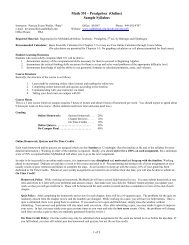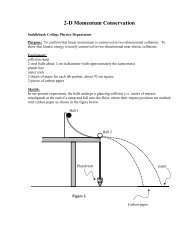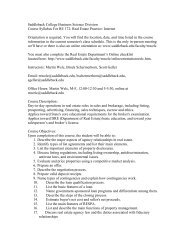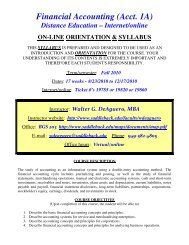Local Linear Approximation; Differentials Solutions To Selected ...
Local Linear Approximation; Differentials Solutions To Selected ...
Local Linear Approximation; Differentials Solutions To Selected ...
You also want an ePaper? Increase the reach of your titles
YUMPU automatically turns print PDFs into web optimized ePapers that Google loves.
1. Confirm that the stated formula is the local linear approximation at x0 = 0.<br />
(a) (1 + x) 15 ≈ 1 + 15x<br />
Let f(x) = (1 + x) 15 , then f ′ 14 d<br />
(x) = 15(1 + x) dx (x) = 15(1 + x)14 .<br />
Now use the local linear approximation formula for f(x):<br />
(b) tan(x) ≈ x<br />
(c) 1<br />
1+x<br />
f(x) ≈ f(x0) + f ′ (x0)(x − x0)<br />
= (1 + x0) 15 + 15(1 + x0) 14 (x − x0)<br />
= (1 + 0) 15 + 15(1 + 0) 14 (x − 0)<br />
= (1) 15 + 15(1) 14 (x)<br />
= 1 + 15x<br />
Let f(x) = tan(x), then f ′ (x) = sec 2 (x).<br />
f(x) ≈ f(x0) + f ′ (x0)(x − x0)<br />
≈ 1 − x<br />
= tan(x0) + sec 2 (x0)(x − x0)<br />
= tan(0) + sec 2 (0)(x − 0)<br />
= 0 + 1 2 (x)<br />
= x<br />
Let f(x) = 1<br />
1+x = (1 + x)−1 , then f ′ (x) = −1(1 + x) −2 (1) = − 1<br />
(1+x) 2<br />
f(x) ≈ f(x0) + f ′ (x0)(x − x0)<br />
= 1 1<br />
− (x − x0)<br />
1 + x0 (1 + x) 2<br />
= 1<br />
1 + 0 −<br />
1<br />
(x − 0)<br />
(1 + 0) 2<br />
= 1 − x<br />
1


